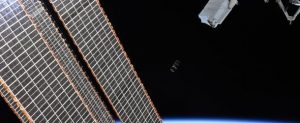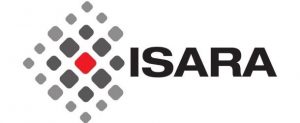Quantum News Briefs October 27: ColdQuanta’s VP Sutor at IQT Quantum Cybersecurity: Building “big enough” quantum computers; Prisco: Quantum networking is a market in search of a leader; Rivada Space Networks GmbH partners with SpeQtral to add QKD encryption to enhance security of low earth orbit satellites + MORE

Quantum News Briefs October 27: ColdQuanta VP Sutor at IQT Quantum Cybersecurity: Building “big enough” quantum computers; Prisco: Quantum networking is a market in search of a leader; Rivada Space Networks GmbH partners with SpeQtral to add QKD encryption to enhance security of low earth orbit satellites + MORE
Sutor at IQT Quantum Cybersecurity: Building “big enough” quantum computers
 Building “big enough” quantum computers is a big engineering challenge with numerous constraints, ColdQuanta VP Bob Sutor noted during this week’s Inside Quantum Technology event in New York city, wrote editor Nancy Liu of sdxcentral. Quantum News Briefs summarizes Liu’s article below.
Building “big enough” quantum computers is a big engineering challenge with numerous constraints, ColdQuanta VP Bob Sutor noted during this week’s Inside Quantum Technology event in New York city, wrote editor Nancy Liu of sdxcentral. Quantum News Briefs summarizes Liu’s article below.
Sutor listed making at least tens of thousands of functional quantum bits (qubits) with low error rates, qubit interconnection, and multiple quantum cores connections as top problems for every provider. “You can’t solve interesting problems with little quantum computers in the same way if your needs are of a modern jet aircraft, and someone’s trying to sell you a bicycle … and it’s even got quantum on the side of the bicycle.”
Today’s largest quantum computing systems only have low-hundreds qubits, Sutor pointed out in his talk. He quoted a 2019 paper from Google indicating that breaking or factoring 2048-bit RSA integers in eight hours needs 20 million noisy qubits.” “Moreover, you don’t make big quantum computers just by making more qubits,” Sutor added. Those qubits must all function with a low error rate, maintain their value sufficiently long, and richly interconnected, while quantum computing providers need to be able to perform 1- and 2- qubit operations fast enough with a low error rate, have techniques to read the computational result accurately, and connect multiple quantum cores.
There is a lot of talk about creating more qubits, but Sutor argued the industry should also pay attention to quantum cores. “We’re only going to be able to make quantum devices that reach a certain size,” he said. “But there is a limit, and the limit is relatively small, relative to the hundreds of thousands or millions of qubits we’re going to need, so if I say I can fit 1,000 qubits in this device, but I need 500,000 of them, [then] I got a problem.”
Plus, “big enough” quantum systems will need multiple cores, chips, qubit arrays, ion traps, and more, Sutor noted. Moreover, those need to be connected using quantum interconnects. “We have to entangle across these things. We need to build a bigger quantum computer by being able to do quantum operations among smaller quantum cores, and this is how we will grow.”
Click here to read Liu’s original coverage of ColdQuanta VP Bob Sutor’s speech at IQT Quantum Cybersecurity.
*****
Prisco: Quantum networking is a market in search of a leader

John Prisco published recently about the potential greenfield opportunity for the savvy entrepreneur or investor: quantum networking. Quantum News Briefs summarizes Prisco’s October 24 article in Forbes below.
With the right focus, early adopters could begin to find the benefits of secure communications and define standard practices for the quantum internet that’s still to come. Yet there does not appear to be a concerted effort to develop a roadmap for quantum networking relying on a few standard approaches that will accelerate development. Unlike at the beginning of the classical internet, there is no market leader like a Cisco developing routers and modems to accelerate development. There are no defined standards to take the small-scale private quantum networks into a wider use case.
Read Prisco at IQT Quantum Cybersecurity: ‘Massive vulnerability’ exists with submarine cables
There are ample examples of some of the world’s leading companies already defining a quantum computing roadmap (IBM is among the widest-ranging). Researchers in both business and academia are working feverishly on new ideas and security applications, including the Chicago Quantum Exchange and Verizon. Government organizations such as the National Institute of Standards and Technology (NIST) are working on testbeds connecting quantum nodes (Alices and Bobs) within local or regional networks as well. However, research-driven projects aren’t typically built by people who commercialize things. Consider, for example, the precursor of today’s internet began its life in the 1960s as part of a defense project.
The road to rapid commercialization depends on demonstrating quantum protocols on standard telecom fiber infrastructure.
We know the telecommunications companies that provide the fiberoptic infrastructure to support the quantum future want a solution that will be able to optimize both the physical fiber and a 5G-and-beyond wireless network. There is not, to date, an innovator developing a quantum networking approach that can do that.
Prisco closes with, “I remain very optimistic about a quantum future. The technical hindrances of quantum computers will be overcome, and as long as you have the threat of quantum speed, you will need quantum-proof security. However, the as-yet-untapped opportunity of defining a quantum networking strategy could be much closer to reality for the right company.”
*****
Rivada Space Networks GmbH partners with SpeQtral to add QKD encryption to enhance security of low earth orbit satellites

Rivada Space Networks GmbH, a global network company launching a constellation of 600 low-earth-orbit satellites (LEO) to enable secure, global connectivity for governments and enterprises, announced it has signed a partnership agreement with SpeQtral, an emerging leader in quantum-secure communications systems, according to an October 26 article from Asia Pacific Defense Reporter.
Rivada Space Networks (RSN) is partnering with SpeQtral to demonstrate the technical compatibility of adding a QKD encryption layer to enhance the security of communications over low earth orbit (LEO) satellite constellations. In 2024, RSN will start the launch of its 300 satellite laser-connected constellation with four precursor satellites and SpeQtral will launch its QKD satellite, SpeQtral-1. This will allow RSN and SpeQtral to jointly establish quantum-secure data links over the RSN precursor satellites and validate both the space and ground station terminals required for QKD-enabled encrypted traffic on the Rivada Space Networks constellation.
Severin Meister, CEO of RIvada Space Networks GmbH added: “Recent events in Ukraine have demonstrated that we are increasingly reliant on the commercial satellite sector and in particular new satellite constellations to provide high-performance, resilient communications infrastructure. Security is a key attribute of Rivada’s unique gateway-less architecture and we believe leveraging quantum technology will enable us to deploy the most secure communications network in the world. Meister continued: “Trialing this innovative new technology here in Germany is extremely important for us as we recently joined the EU’s multi-stakeholder Secure Connectivity Programme, and we are excited to add quantum encryption capability to the provision of an independent and secure communications infrastructure for Europe.” Click here to read original article.
*****
ISARA makes four digital certificate patents publicly available to boost quantum security
 ISARA revealed that it is dedicating the intellectual property behind its ISARA Catalyst Agile Digital Certificate Methodology — including four patents to the public as per an October 26 announcement in NetSecurity summarized below.
ISARA revealed that it is dedicating the intellectual property behind its ISARA Catalyst Agile Digital Certificate Methodology — including four patents to the public as per an October 26 announcement in NetSecurity summarized below.
Industry leaders, including Crypto4A, DigiCert, Entrust, ISARA, Keyfactor, PKI Solutions, Sectigo, and Venafi, are among those who promote secure, crypto-agile solutions to ease the quantum computing migration path for organizations.
Hybrid certificates, an important component of ISARA’s Catalyst methodology, enable organizations to have a seamless, cost-effective, and simplified migration to quantum-safe security today to protect connected devices and the Internet of Things (IoT) — as well as complex public key infrastructures (PKIs) — with no impact to end users. These certificates support two or more cryptographic algorithms within a single certificate and can support both classic and quantum-safe public keys and signatures.
A hybrid certificate is a traditional X.509 digital certificate that has additional quantum-safe components encoded within it. One of the key characteristics of hybrid certificates is the ability to simultaneously support existing systems as well as those that have been upgraded to be quantum safe. When an organization starts to migrate its systems and applications to quantum-safe cryptography, they won’t need to support two separate PKIs — one for traditional certificates and one for quantum-safe certificates — since they will already have two-in-one hybrid certificates in place. This provides backward compatibility during the transition period to quantum.
*****
Sandra K. Helsel, Ph.D. has been researching and reporting on frontier technologies since 1990. She has her Ph.D. from the University of Arizona.



















